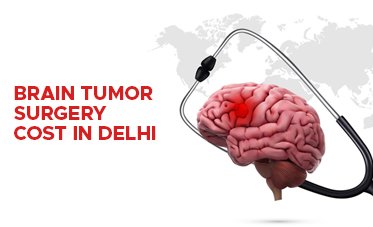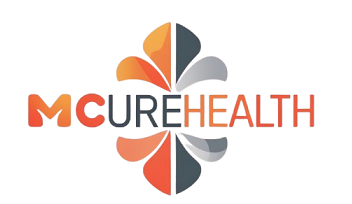
Brain Tumour Treatment in Delhi
A brain tumour refers to an abnormal growth of cells or tissues within the brain or the skull vault. It occurs due to uncontrolled and abnormal cell division. Brain tumours can originate in the brain itself or in other parts of the body and spread to the brain. They can affect various structures within the brain, including the brain tissue, blood vessels, cranial nerves, brain meninges, skull, pituitary gland, or pineal gland.
Brain Tumour Types
Brain tumours can be classified into several types:
- Benign Brain Tumour: These tumours are non-cancerous. However, they still need careful evaluation to determine if they are located near blood vessels, nerves, or the brain stem.
- Malignant Brain Tumour: These tumours are cancerous. It is important to identify whether a malignant tumour is primary (originating in the brain) or metastatic (spreading to the brain from another site). Factors such as size, type, and location of the tumour play a crucial role in determining the optimal treatment plan.
- Metastatic Brain Tumour: A metastatic brain tumour is a malignant tumour that results from the spread of cancer cells from another area of the body to the brain. The most common primary sites of metastasis are the lung, breast, kidney, colon, or metastatic melanoma. In some cases, metastatic brain tumours may cause symptoms before the primary site is diagnosed.
Risk Factors of Brain Tumour
While the exact causes of primary brain tumours remain unknown, several risk factors have been identified:
- Radiation: Exposure to radiation, such as undergoing radiotherapy or frequent imaging scans like CT scans or X-rays of the head, increases the risk of developing brain tumours.
- Genetic Diseases: Certain genetic disorders, including Neurofibromatosis, Turcot syndrome, Von Hippel-Lindau syndrome, and Li-Fraumeni syndrome, can predispose individuals to brain tumours.
- HIV or AIDS: People with HIV or AIDS have a higher susceptibility to brain tumours due to their weakened immune system.
Brain Tumour Symptoms
The symptoms of brain tumours vary depending on the type and location of the tumour. In some cases, tumours may not exhibit any symptoms until they reach an advanced stage. Common signs and symptoms include:
- Recurrent headaches, often accompanied by vomiting.
- Seizures (fits)
- Vision problems – Diplopia, Blurred Vision, Decreased Vision
- Hearing loss and dizziness
- Weakness or paralysis in specific body parts
- Recent Memory loss or behavioural changes
- Numbness in the arms and legs
- Recent Personality changes
- Balance and coordination issues
- Facial pain or abnormal facial movements
If any of these symptoms are experienced, it is crucial to seek immediate medical attention and consult a skilled doctor, especially at a reputed neuro hospital.
Brain Tumour Treatment
The Max Institute of Neurosciences, located at Max Healthcare, offers various treatment options for brain tumours:
- Partial surgical removal: When the tumour is located in vital areas of the brain, partial removal may be performed to minimise the risk of neuro deficit.
- Complete surgical removal: Surgeons aim to remove the entire tumour without damaging essential brain tissue.
- Endoscopic Surgery: Certain Skull based tumours like pituitary adenoma, clivus chordoma etc., can be managed by an endoscopic approach.
- Stereotactic Biopsy: Deep-seated, unresectable table, multiple brain lesions, stereotactic biopsy can be done.
- Radiation Therapy: Ionising radiation is used to treat malignant brain tumours. Advanced techniques help minimise damage to normal tissues surrounding the tumour.
- Chemotherapy: Specific drugs and chemical agents are used to destroy malignant tumour cells selectively.
- Medications: Steroids and cerebral decongestants are administered to reduce brain swelling, anticonvulsants help prevent seizures and pain medication is given as necessary.
- Wait & Watch Approach: Some slow-growing, benign tumours may be closely monitored through regular imaging scans without immediate intervention. The treatment decision depends on the tumour type and characteristics.
Brain Tumour Treatment Cost
The cost of brain tumour treatment at Max Healthcare depends on several factors, including:
- Surgical intervention or type of surgery required.
- Management of metastasis or comorbid conditions.
- Length of hospital stay in ICU or room.
- Additional lab tests or imaging are required.
- Use of special tools for surgery like Neuronavigation, intraoperative neuro monitoring etc.
Brain Tumour Expertise
The Max Institute of Neurosciences, part of Max Healthcare, offers super-specialised tertiary care for neurological disorders, including brain tumours. It has a dedicated team of neurosurgeons, neurologists, neuropsychologists, neurophysiologists, intervention neurologists, and neuro anaesthetists who work collaboratively to provide tailored treatment plans for patients. The institute utilises advanced technologies such as Intraoperative, Neuro Navigation & Intraoperative Neuro Monitoring wherever it is required.
Brain Tumour Approach
Early diagnosis and prompt treatment are crucial for brain tumour patients. Diagnosis involves neurologic exams, MRIs, and CT scans. Sometimes one may require pre-operative Brain Angiography to look for tumour embolisation to make the tumour less vascular, if possible over all the treatment plan is determined based on factors such as the patient’s age, the overall health of the patient, tumour type, size, location, and characteristics. Treatment may involve a single or combination of procedures, including surgery, radiation therapy, chemotherapy, or medications.
Brain Tumour Prevention
While it is not possible to prevent all brain tumours, certain measures can reduce the risk:
- Minimise exposure to ionising radiation
- Follow appropriate safety measures in occupational settings
- Seek genetic counselling for individuals with a family history of brain tumours
- Manage HIV or AIDS effectively to maintain a healthy immune system
Factors Drastically Affecting the Cost
Type of Hospital:
Public Government Hospitals (AIIMS, Safdarjung): Cost is highly subsidized, potentially ranging from ₹50,000 to ₹2,00,000. However, waiting times can be very long, which is a critical factor for brain tumors.
Private Hospitals (Medanta, Max, Apollo, Fortis, BLK): Cost is as per the range mentioned above. You pay for advanced technology, shorter waiting times, and private rooms.
Complexity and Type of Surgery:
Standard Craniotomy: For more accessible tumors. Lower end of the cost spectrum.
Complex / Skull Base Surgery: For tumors in deeply embedded or high-risk locations. Requires more time, advanced technology, and a larger team, pushing costs to the higher end.
Awake Craniotomy: Performed for tumors in eloquent brain areas. Requires a specialized neuro-anesthesia team and is more expensive.
Biopsy vs. Resection: A stereotactic biopsy (just taking a sample) is significantly cheaper than a full tumor removal.
Technology and Equipment Used:
Neuronavigation: GPS-like guidance for the brain. Adds to the cost.
Intra-operative Monitoring: Monitoring nerve function during surgery. Adds to the cost.
Advanced Microscopes and CUSA: Using high-end surgical equipment increases precision and cost.
Neuro-endoscopy: For minimally invasive procedures.
Surgeon’s Fee: The experience and reputation of the neurosurgeon play a significant role.
Length of Hospital Stay: A stay in the ICU for several days post-operation is common and is a major cost component.
Additional Treatments:
Histopathology: Cost of analyzing the tumor tissue.
Post-operative Therapies: Radiation therapy (e.g., Gamma Knife, CyberKnife) and/or chemotherapy, which are separate costs.
Hospitals for Brain Tumor Treatment in Delhi NCR
- All India Institute of Medical Sciences (AIIMS): The top government hospital. World-class expertise at a fraction of the cost, but extremely long waiting lists.
- Medanta – The Medicity, Gurgaon: Renowned Institute of Neurosciences with state-of-the-art technology.
- Indraprastha Apollo Hospital, Delhi: Has a very strong and experienced neurosurgery department.
- Max Super Speciality Hospital, Saket: Excellent neuroscience team and advanced operation theatres.
- Fortis Memorial Research Institute (FMRI), Gurgaon: Known for its advanced technology and skilled surgeons.
- BLK-Max Super Speciality Hospital, Delhi: Has a comprehensive neurosciences centre.
- Artemis Hospital, Gurgaon: JCI-accredited with a strong neurosurgery unit.



Leave Your Comment